Macro-Finance Salon (No. 104): International Monetary System and Its Impact on East Asia
2018-10-30 IMI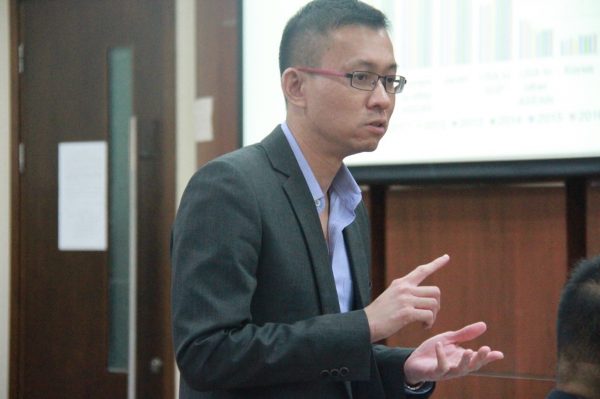 Mr. Fu Chuanyong first talked about the general history of the Chiang Mai multilateral agreement, introduced the general functions of AMRO in detail, and gave a detailed introduction and in-depth thinking on the building of a regional financial security network in East Asia. Then, Mr Fu also presented his thinking on future development of AMRO and the region from the perspective of AMRO operation mode, regional resource cooperation issues, AMRO human resources, etc., and provide his suggestions for the coordination mechanism.
Mr. Fu Chuanyong first talked about the general history of the Chiang Mai multilateral agreement, introduced the general functions of AMRO in detail, and gave a detailed introduction and in-depth thinking on the building of a regional financial security network in East Asia. Then, Mr Fu also presented his thinking on future development of AMRO and the region from the perspective of AMRO operation mode, regional resource cooperation issues, AMRO human resources, etc., and provide his suggestions for the coordination mechanism.
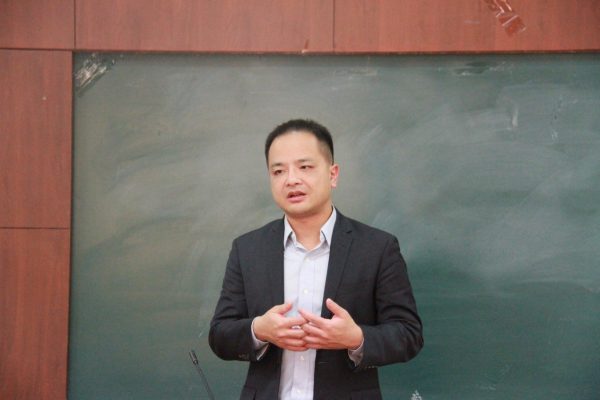 Later Mr. Liu Xinyi delivered a speech on “Economic Relations Between China and ASEAN”. By combining rich diagrams and data, he analyzed the development period of China’s foreign trade, China’s economic structural adjustment and the current situation of ASEAN Countries’ economy. He also compared the main products in import and export trade of ASEAN countries and China. He pointed out that there was frequent trade between China and ASEAN, but we still had great potential in commercial cooperation and exchanges in many other areas.
Later Mr. Liu Xinyi delivered a speech on “Economic Relations Between China and ASEAN”. By combining rich diagrams and data, he analyzed the development period of China’s foreign trade, China’s economic structural adjustment and the current situation of ASEAN Countries’ economy. He also compared the main products in import and export trade of ASEAN countries and China. He pointed out that there was frequent trade between China and ASEAN, but we still had great potential in commercial cooperation and exchanges in many other areas.
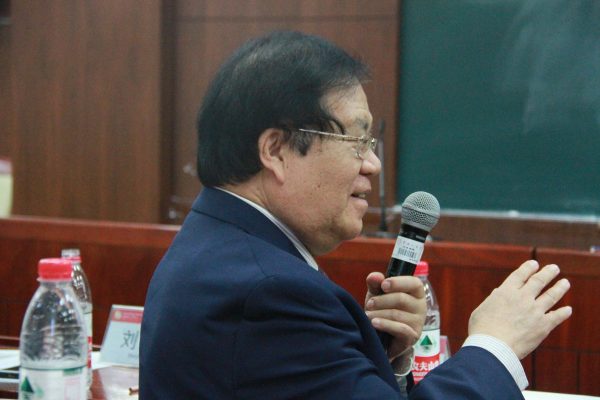 After the speech, the host Wei Benhua expressed his thanks on behalf of all guests. And as the founder of AMRO, he also put forward his opinions. He mentioned that what boosted the development of AMRO was the determination of cooperation between ASEAN 10 countries and China, Japan and Korea. Only with strong desire to cooperate and with real actions, can we achieve further progress.
After the speech, the host Wei Benhua expressed his thanks on behalf of all guests. And as the founder of AMRO, he also put forward his opinions. He mentioned that what boosted the development of AMRO was the determination of cooperation between ASEAN 10 countries and China, Japan and Korea. Only with strong desire to cooperate and with real actions, can we achieve further progress.
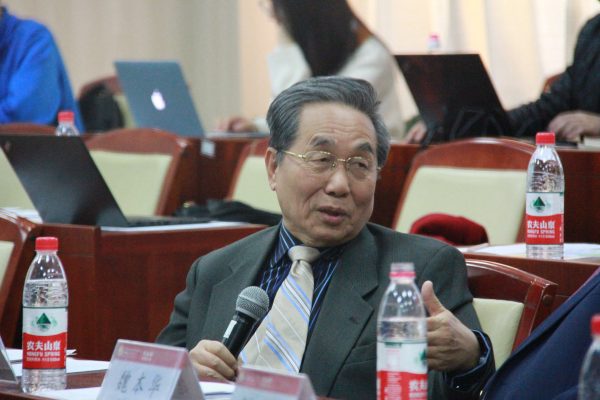 Zhang Zhixiang also shared his insights about the theme of this Macro-Finance Salon. First of all, Mr. Zhang Zhixiang expressed his affirmation of the achievements and development of AMRO in recent years, and expounded the significance of its existence and broad prospects of development based on the comparison with Europe, Asia's own conditions and realistic external conditions. Finally, Mr. Zhang Zhixiang put forward his expectations and wishes for the future development of AMRO.
Zhang Zhixiang also shared his insights about the theme of this Macro-Finance Salon. First of all, Mr. Zhang Zhixiang expressed his affirmation of the achievements and development of AMRO in recent years, and expounded the significance of its existence and broad prospects of development based on the comparison with Europe, Asia's own conditions and realistic external conditions. Finally, Mr. Zhang Zhixiang put forward his expectations and wishes for the future development of AMRO.
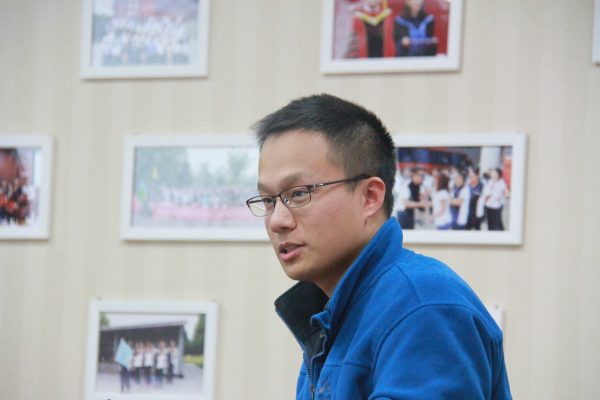 After the presentation by Mr. Fu chuanyong, Mr. Liu Xinyi, Mr. Wei Benhua and Mr. Zhang zhixiang, the audience actively exchanged and interacted with each other. They raised questions from Japan, Japan and the Republic of Korea, the possibility of the mechanism of counterpart development between China and ASEAN countries, and the effectiveness of the future international aid of ASEAN countries.
After the presentation by Mr. Fu chuanyong, Mr. Liu Xinyi, Mr. Wei Benhua and Mr. Zhang zhixiang, the audience actively exchanged and interacted with each other. They raised questions from Japan, Japan and the Republic of Korea, the possibility of the mechanism of counterpart development between China and ASEAN countries, and the effectiveness of the future international aid of ASEAN countries.
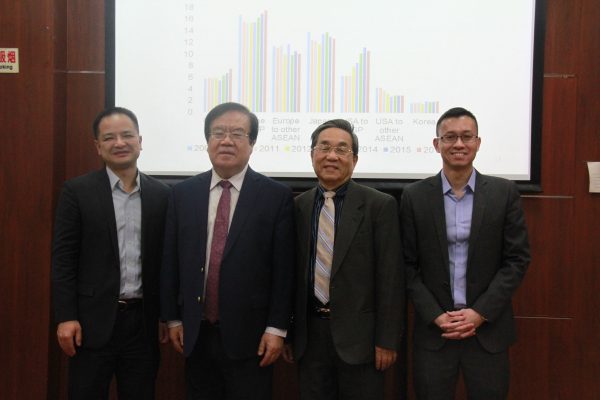 The Macro-Finance Salon is a high-level academic salon jointly initiated and established by the international monetary research institute of Renmin University of China and the monetary and financial department of the school of finance and economics, which is divided into four series: "policy experts", "academic masters", "industry elites" and "young scholars".
The salon places emphasis on China's reality and the international frontier. It has built a high-level, professional and open academic exchange platform to promote the discipline of " wholistic finance" in the new era and to carry out relevant theories, policies and strategy research. Theoretically, the concept of " wholistic finance" derives from combining macro and micro financial theory, an idea proposed and advocated by Professor Huang Da. Conceptually, it derives from the systematic thinking of finance and the real economy as an inseparable and organic whole. Chen Yulu, deputy governor of the People's Bank of China, systematically demonstrated the basic connotation and methodology of "wholistic finance" in "The Outline of Wholistic Finance", laying the theoretical and empirical foundation for "wholistic finance", which is conducive to promoting long-term economic growth and enhancing national competitiveness.
The Macro-Finance Salon is a high-level academic salon jointly initiated and established by the international monetary research institute of Renmin University of China and the monetary and financial department of the school of finance and economics, which is divided into four series: "policy experts", "academic masters", "industry elites" and "young scholars".
The salon places emphasis on China's reality and the international frontier. It has built a high-level, professional and open academic exchange platform to promote the discipline of " wholistic finance" in the new era and to carry out relevant theories, policies and strategy research. Theoretically, the concept of " wholistic finance" derives from combining macro and micro financial theory, an idea proposed and advocated by Professor Huang Da. Conceptually, it derives from the systematic thinking of finance and the real economy as an inseparable and organic whole. Chen Yulu, deputy governor of the People's Bank of China, systematically demonstrated the basic connotation and methodology of "wholistic finance" in "The Outline of Wholistic Finance", laying the theoretical and empirical foundation for "wholistic finance", which is conducive to promoting long-term economic growth and enhancing national competitiveness.
